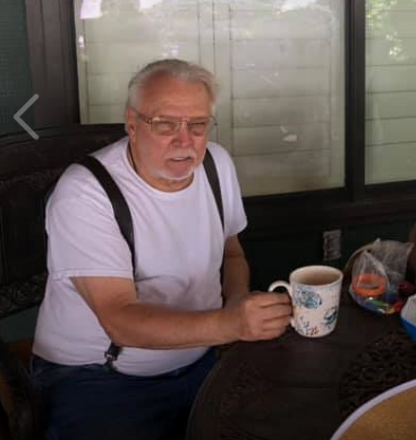Norman L. Bliss
A Life Remembered

Norman L. Bliss has lived many lives within one lifetime. For years, he walked through the shadows of addiction, struggling with alcohol and drugs, and enduring the heartbreak of three failed marriages. It was a time when life felt fragile, uncertain, and often hopeless. Yet even in those dark valleys, seeds were being planted seeds of reflection, resilience, and a search for meaning that would later define his life’s work.
The turning point came when family, especially his daughters, urged him to look toward something greater. That call led him to Horizon Christian Fellowship, where he heard a sermon that changed everything. In that moment, Norman gave his life to Jesus Christ, becoming a born-again Christian. It was not a shallow conversion but a radical transformation. He put away alcohol and drugs, embraced daily Bible reading, and began to build his life not on old habits but on faith, discipline, and vision.
Out of this renewal grew a passion for writing. What began as a spark has become a fire Norman has authored more than ninety books, covering subjects as wide as artificial intelligence, cosmology, philosophy, and theology. His works are not just fiction or essays; they are attempts to wrestle with some of the biggest questions humans face: What is the meaning of life? Where are we headed as a civilization? How do science and faith connect?
Norman is not afraid to look directly at the challenges of modern times. He writes about the dangers of artificial intelligence with both awe and fear, seeing in it both a threat and a possibility. From his perspective, AI cannot be safely guided by human pride or politics alone. Instead, he has developed a concept he calls Theocentric Philosophical Alignment the idea that all human philosophy, ethics, and even advanced technologies must be aligned with God’s eternal truth, especially the Ten Commandments, if they are to serve humanity rather than destroy it.
His books are more than entertainment; they are warnings, blueprints, and conversations with the future. He mixes scientific speculation about the Big Bang, quantum physics, or the fate of the universe with theological depth, drawing on voices like Augustine, Luther, Calvin, Kierkegaard, Aquinas, and C.S. Lewis. His style often blends story with essay, imagination with reflection, prophecy with philosophy.
Norman also writes with an eye toward legacy. He knows he will not live forever, but he believes his words can outlast him. That is why he not only writes but also publishes, organizes, and even dreams up creative ways to present his works from custom book collections and stands to professional covers and blurbs. Each book is both a piece of art and a piece of testimony, an offering to future readers.
At the core of his life is faith. He has come to see himself as a theologian at heart, not tied to one denomination but devoted to exploring God’s truth wherever it can be found in Scripture, in philosophy, in science, and even in the dilemmas of technology. For him, Christianity is not just a religion but a relationship, a personal trust in God that transformed his broken past into a purposeful present.
Now in his mid-eighties, Norman writes not simply to pass the time but to fulfill a mission: to warn America of corruption and decline, to call people back to wisdom and faith, and to challenge readers to see the world not just as it is but as it could be if aligned with God. In his words there is urgency, but also hope that even at the edge of chaos, humanity can still choose truth, honor, and redemption.
